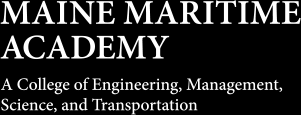Fire Onboard!
I was Captain of the Hopper Dredge Stuyvesant in February, 2005, working from Fernandina Beach, Florida near a submarine base where we were clearing a channel. It was 20:30 when my phone rang and Chief Mate John Schieferstein ’99 says, “We have a problem in the engine room and need to take the starboard engine down.”
“Any traffic?” I asked.
“Nope, just Right whales spotted, so we’re only doing about five knots.”
“Okay, I’ll be right up.”
At 20:51, I remember it exactly, the front of the wheelhouse suddenly became engulfed in smoke. I turned to John and said, “We have a fire in the engine room, sound the general alarm, right now.” (Exhaust ports for the engine room were forward of the wheelhouse.)
Just as he sounded the alarm, the whole ship shook, like we had run aground. Then, the ship went black; there was no power.
What I didn’t know at that moment was that the starboard main engine crankcase exploded. There were three men in the engine room at the time. The first assistant was 15 feet away from the engine when it exploded. The whole front of the engine, which was 12 feet high and weighed several tons, blew off. If he had been a few feet to starboard it would have crushed him.
We were drifting with no power, no idea what was going on. I went down to the emergency gear locker, and the two teams were fully dressed in their turnout gear. The chief steward was mustering the remaining crew. The only two missing were in the engine room, which included Chief Engineer Will Childs ’94.
Will is one of the best engineers you’ll ever come across. He knew that engine room so well, with only a cloth over his face, in zero visibility and all the smoke, he found the water hose and put the fire out before the fire crew arrived.
Thank God; just two days before, he and I were doing a walk-around, he pointed out the bilges were oily and dirty, and had the men clean them. If that hadn’t been done, things could have been a lot worse. As it turned out, there were no injuries.
Will got the port engine running and we made our way to a dock in Georgia. The next day, the Coast Guard came calling and we went through the whole incident, my documents, policies and procedures, which I had covered in a quick cheat sheet I learned to do at MMA. Fact is, there was a lot of MMA knowledge that came into play during the incident— the importance of drills, knowing the ship, its systems, and your workspace like the back of your hand, right down to having a flashlight and knife with you, always.
Everybody stepped up that night, and that I will never forget.█
— CAPT. STEVEN S. PELLEGRINO ’93
Illustration: Ann McClellan




Post Comment
Comments are moderated and will be reviewed prior to posting online. Please be aware that when you submit a comment, you agree to the following rules:
Maine Maritime Academy reserves the right to delete any comment that does not comply with these guidelines and is not responsible or liable in any way for comments posted by its users. If you have a message for the editor, please email mariner@mma.edu.
Class Notes
View All >Read More
Read More
Read More